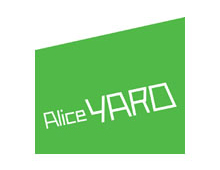Freedom to write

On 3 May, 1991, a group of African journalists at a UNESCO conference in Namibia issued what has come to be called the Windhoek Declaration on press freedom. "The establishment, maintenance, and fostering of an independent, pluralistic and free press," it reads, "is essential to the development and maintenance of democracy in a nation." Two and a half years later, the United Nations General Assembly recognised that document's importance by declaring 3 May World Press Freedom Day.
Today, World Press Freedom Day 2009, the international writers' association PEN launches its Freedom to Write in the Americas campaign, which "aims to highlight the persecution of writers and journalists and the issue of impunity in the region, provide direct support to colleagues in trouble, and raise awareness of trends of repression and censorship threatening writers' rights." Twenty-nine PEN centres around the world are participating, and over fifty writers (including Derek Walcott, Junot Diaz, and Paul Auster) have signed a "Declaration in Defense of the Freedom to Write in the Americas".
To start with, the PEN campaign is paying close attention to Mexica, Cuba, Venezuela, Peru, Colombia, and Nicaragua, "selected on the basis of the volume of attacks and severity of persecution against writers in recent years." This page offers suggestions for anyone interested in taking action, and the main campaign page gives details of specific cases that PEN is monitoring.
In the Caribbean, like everywhere else, we need our writers--not just journalists, but novelists, poets, playwrights, historians, critics--to ask unpopular questions, reveal uncomfortable facts, and compel us to consider those crucial matters that our political leaders would rather we ignored. Spare a few minutes today not just to look at the PEN campaign page but to consider all the possible threats to our writers' freedom of expression--and all the ways we readers can demonstrate our support.







